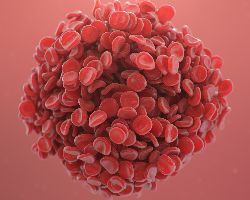Health library
Back to health libraryAnemia: What a little iron can do

If you don't have enough iron in your blood, a variety of health problems can result.
Your body needs many vitamins and minerals to stay strong and healthy. One of the most important is iron.
Without iron, your body can't produce hemoglobin. Hemoglobin is a protein found in your red blood cells. It delivers oxygen from your lungs to the rest of your body.
If you don't have enough iron in your blood, the resulting anemia may cause:
- Paleness.
- Fatigue.
- Shortness of breath.
- Fast, slow or uneven heartbeat.
- Dizziness or light-headedness.
- Headaches.
The most common causes of iron-deficiency anemia include diet, pregnancy, heavy or prolonged menstrual bleeding, and growth spurts. Because anemia may result from blood loss in the stomach or intestines, an accurate diagnosis is critical.
If you have symptoms of anemia, talk to your doctor. And if you want to avoid anemia, make sure to get enough iron in your diet.
According to the American Academy of Family Physicians and the American Red Cross, these iron-rich foods can help:
- Liver and red meats.
- Fish, including tuna, sardines and haddock.
- Dried fruits such as apricots, prunes and raisins.
- Beans, such as kidney and lima beans.
- Green leafy vegetables such as spinach and broccoli.
- Whole grains.
- Tofu.
Try to avoid coffee, tea, milk, fiber, egg whites and soy protein when you eat iron-rich foods. They hinder your body's absorption of iron.
Reviewed 4/1/2025
